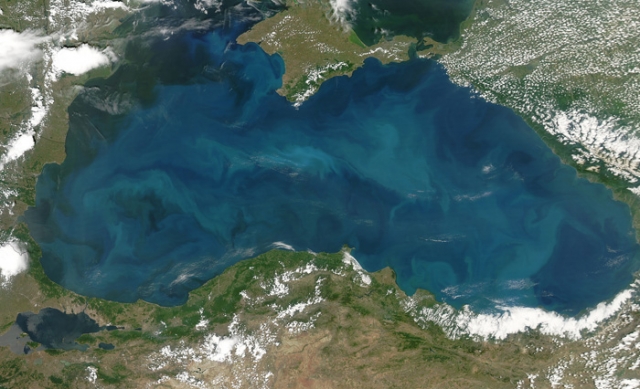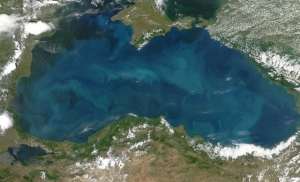BBC Releases a Short-Film: Europe’s Most Polluted Sea – The Black Sea
The BBC issued a short video documentary on the Black Sea and even goes as far as labeling it "Europe’s most polluted sea."
"In Europe’s south-eastern corner, the Black Sea has become a ‘dustbin’ for the surrounding countries. 20 years ago, 40,000 square kilometers of the Sea was considered a ‘dead zone’," reports tge BBC.
The documentary footage starts in Batumi, Georgia, on a garbage patch only 300 meters from the Sea. This is not only harmful to the surrounding environment, but to the animals scavenging on the garbage. Most importantly, there is a waterway that leads directly from the dump to the sea. Essentially, rivers are the main source of pollution in the Black Sea.
Jaroslav Slobodnik, a representative from the Emblas Project said on the issue that “we already have disturbing evidence that marine litter, which is the number of floating items per square kilometer, is almost double compared to the Mediterranean Sea, and it’s the worst situation from all European seas.
The River Dnipro in Ukraine is one of the main contributors to the pollution accumulating in the Black Sea. Fertilizers and waste dumped into the river causes algal blooming, starving the water of oxygen and killing most aquatic life.
Three rivers contribute to most of the Black Sea’s pollution, all originating from Eastern Europe and ending up in the northwestern part of the Sea: the Danube, Dniester and Dnipro. In Odessa, Ukraine, people are not advised to swim in the Sea, although the population largely ignores these warnings.
“The high concentrations of chemicals is alarming, such that you would not expect in the Sea 400km from the shore,” says Mr. Slobodnik. The samples these scientists take from the seafloor also contain microplastics, which means that this type of pollution “has already penetrated deep into the ecosystem.”
The biggest threat, according to the Emblas Project scientists, are the pharmaceuticals, especially from antibiotics. There have been some serious attempts to find a solution to the Black Sea problem, with the EU having spent billions of Euros on wastewater treatment plants. The Danube River in particular is receiving a lot of help in this direction.
“New and potential EU members have had to reduce industrial and agricultural pollution into rivers”, remarks the BBC. The scientists also state that, slowly but surely, “the Black Sea is recovering.”
Watch the documentary here
By Beka Alexishvili












